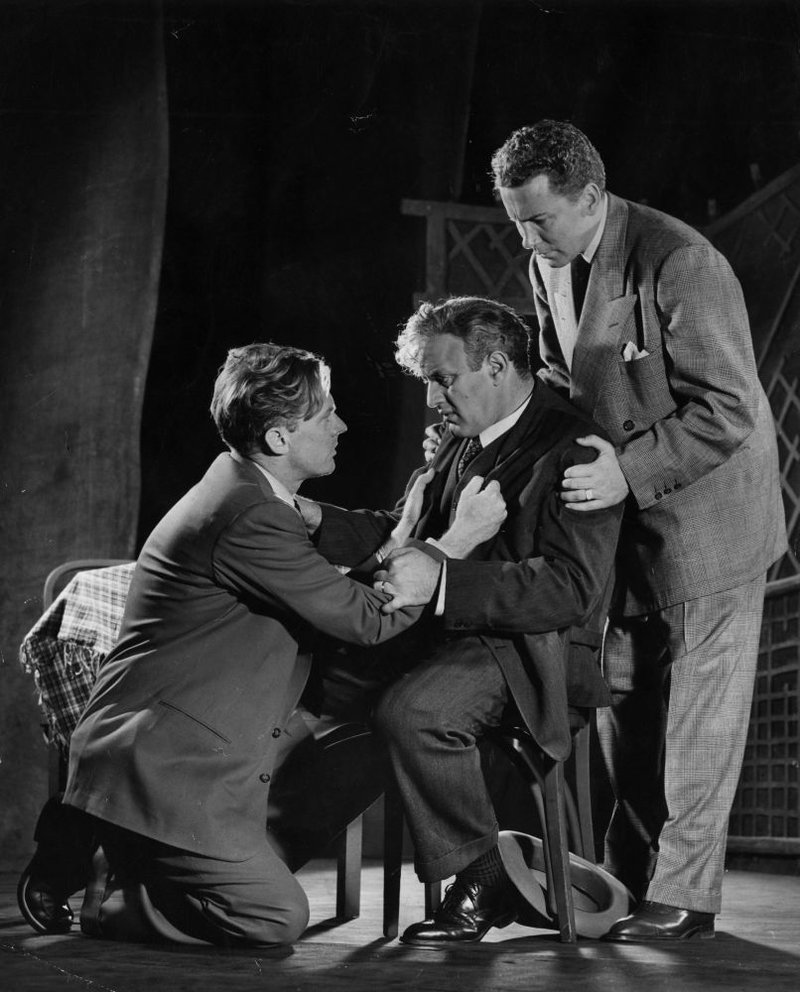Death of the Sales(wo)man’s Reputation

“As soon as the gold in the casket rings; the rescued soul to heaven springs.”
What could be the very first formal pitch from the first example of the “bad salesman.” His name: Johann Tetzel (1519 AD). His job: raising money to assist Pope Julius II in building St. Peter’s Basilica in Rome. Johann, aka John, was very good at his job. His weapon? Fear. His leverage? Donate to the church, assist in building this cathedral, avoid hell. And…you didn’t really have to repent! Your donation. without copping to anything, released some relative from purgatory sending them upward, into the gates of heaven. Mom, child, weird uncle, all saved from a downward journey.
You are probably asking yourself, “How the heck did we get here?” In a recent conversation with a client, I was asked how the sales professional got such a bad reputation. How did it all begin? I was dumbfounded, truthfully answering “I don’t know and I should know!”
And so begins the death of a sales(wo)man. This image the world has of sales professionals goes back a long, long way. I’m sure there are examples prior to Johann (who I affectionately call Johnny). He’s the first I can find who’s a documented bad boy closer. From here society manages to malign a noble and important professional and contributor to moving commerce and community forward via numerous public and sensationalistic displays.
With Dickensian inspiration via too many viewings of A Christmas Carol over the holidays acting as our spirit guide, let’s travel the timeline (mostly fleshed out via Hollywood and Broadway backdrops) to the quintessential and well-known sales professional stereotypes to see how bad actors assisted by bad storytellers have perpetuated the world’s view of us.
Let’s start with Willy Loman — Arthur Miller’s protagonist in Death Of A Salesman, what many critics call the greatest play in American history. Described as such: He is 63 and unstable, insecure, and self-deluded. Willy tends to re-imagine events from the past as if they were real. He vacillates between different eras of his life. Willy seems childlike and relies on others for support, coupled with his recurring flashbacks to various moments throughout his career. His first name, Willy, reflects this childlike aspect; Willy also sounding like the question “Will he?” The play itself explores a montage of memories, dreams and arguments of the protagonist, disappointed with life and appearing to be slipping into senility. The play contains many powerful themes, such as the American Dream, the anatomy of truth, and betrayal. It explores the psychological chaos of the protagonist and the capitalist society’s impact on his life.[1]
Well that’s cheery and positive.
Moving on we have Glengarry Glen Ross. David Mamet (I’m a fan of his work) takes the next swipe at sales professionals along this journey with his interpretation of sales as a study in masculinity, desperation and deceit. Not one woman in the cast by the way. Another miss in society’s interpretation of what a sales professional actually is: the fact that the marketplace Mamet’s characters reside in, real estate, is 63% by women! Um, David? Dude. WTH? There is so much raw language in this play/movie that cast members darkly referred to it as “Death of a F—kin’ Salesman.” So glad this legacy is cast upon the sales professional.
Next up dear traveler, the financial marketplace’s derogatories: Wall Street and its younger brother, Boiler Room. Cage-fighting versions of sales professional reputation assassinations. For those Xers, Millennials and Zs living in a bell jar, these two gems, while certainly watchable the way rubbernecking a particularly bad traffic accident is, are complete stereotypes of what it means to be a sales professional. Oliver Stone, a conspiracy theorist extraordinaire and seemingly anti-capitalist (while making millions selling his celluloïds), makes arguments in Wall Street that pits capitalism vs. socialism, management vs. unions. His sales professional antagonist extraordinaire Gordon Gekko proclaims; “Greed is Good!” Boiler Room, while not quite as glam, big 80s, is a more modern version extending to include Millennials to reach into the next generation of ne’er do wells looking to fleece us of our hard-earned coin. Is this what it’s all about? Can the only currency we hold close be money?
OK, rushing forward, as your spirit guide, I’m about to “get the hook.” Daylight on this journey is near so I want you to hang on just a bit before you wake up, fetch a turkey from the local butcher and run to loved ones to repent your evil sales ways. This is not how sales professionals conduct their lives!!
You are, the best of you, legitimately hardworking, caring, compassionate, consummate professionals. Today’s sales professional. And it’s up to you, the young emerging sales professional, men and women, to take back what’s been surrendered: our collective reputations. Show everyone that you have their best interest in mind, that their agenda comes first, that focusing on the person, not the thing between you, is the real “sell.” Now is the time to grab the mantle, shout out “Bah Humbug” to the next perpetration of anti sales professional bias and show the world that the real bad actors are storytellers who are selling an idea and an image that is the exception. Willy Loman at one point laments “I am not a dime a dozen!” Well, you’re not. None of us are. Show ‘em. Let ‘em know it.
Be big. Be cool. Be hippo.
Ready to get started?









